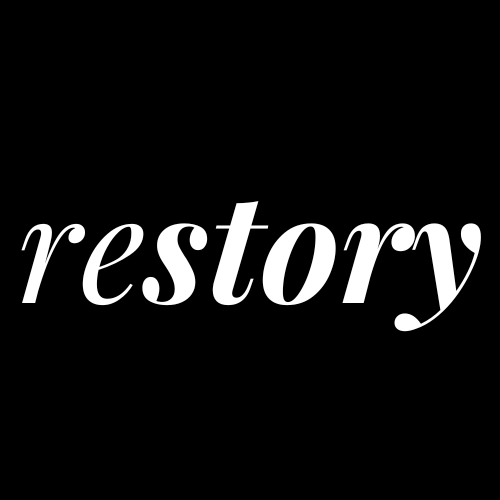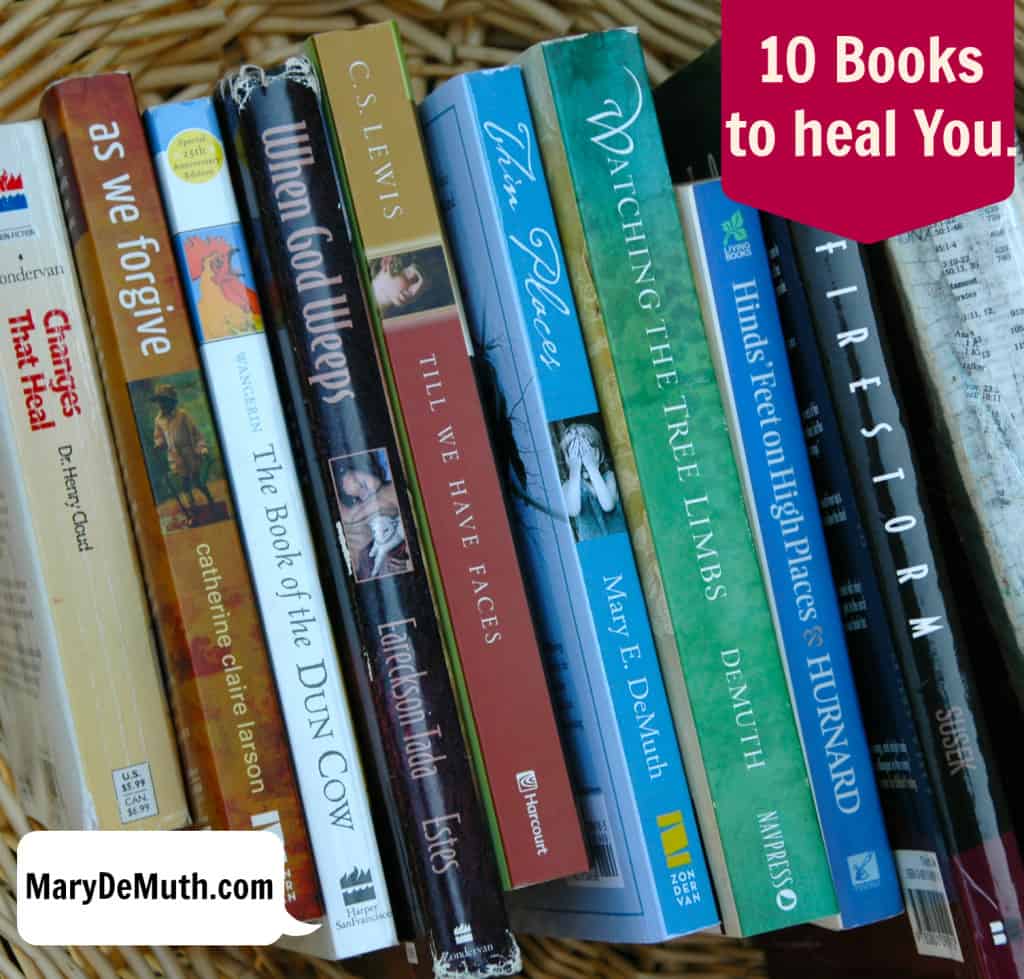I love books. Do you? Books have had such an incredible impact in my life, and they have been God’s instrument of healing. Here are ten books you can give this Christmas (or any time) that will give the gift of healing.
Changes that Heal by Dr. Henry Cloud & John Townsend. Of all the books I’ve read and wrestled through, this one stands supreme as the one that truly, truly opened my eyes to how damaged I was and how much I needed healing. They give practical tools to learn how to think differently, and uncover ways we try to cope when we’re messed up. So, so insightful. Completely life altering.
As We Forgiveby Catherine Claire Larson is one of those life-changing books that will linger with you the rest of your life. It’s not for the fainthearted. It’s not for the hard-hearted or those bent toward stubborn unforgiveness. It’s primarily a story of hope.
During 100 days of 1994 800,000 people were brutally murdered in Rwanda—a genocide swifter in execution than Nazi gas chambers. Imagine Denver and Colorado Springs—every man, woman and child—suddenly gone from our population and you’ll appreciate the scope of the horror. (And go look on a map of Africa. Trace your finger due South of Uganda, due West of the Congo and you’ll appreciate how little this country is.)
As We Forgive shares the stories of genocide survivors, recounting the unspeakable. But it does not stop there. Larson pulls back the curtain of the most ostentatious acts of forgiveness I’ve witnessed, where genocide survivors choose to forgive those who perpetrated such violence.
Together, through reconciliation practices and restorative justice, they are rebuilding their country from the ruins of hatred—all on the back of the One who still bears the scars for our sins today.
I came away from this book changed, deeply moved, and inspired. Having seen the power of God to help people forgive the seeming unforgiveable, it gave me hope that my own wrestling with forgiveness would end in hope. I also appreciated that none of the forgiveness modeled was simple or easy or quickly won, nor does the book purport that reconciliation is merely forgiveness while forgetting. For true restoration to occur, the person perpetrating the atrocity must first fully own his/her own sin and grieve it as such. And for the person who was sinned against to heal, he/she must revisit the place of grief in order to heal.
All this dovetails beautifully into the message God’s been birthing in me—to help people who suffer silently to tell the truth about their pasts, to choose the difficult path of forgiveness, in order to heal.
If God can reach into a genocide victim’s heart and offer peace; if He can transform a murderer into a productive member of a reconciled society; then surely He can transform your pain today. That’s the patent hope this book gives. It’s a gift to all of us. And I pray it’s a gift all open.
The Book of the Dun Cow by Walter Wangerin. When I read the book, I did not know I’d experience a radical bout of healing. Pertelote, a young hen, mistook a good rooster, Chauntecleer for Cockatrice, the poultry world’s Hitler. She recoiled in the good rooster’s presence. Later when he gently asked why, she replied, “Chauntecleer, what I thought I saw in you was not there. What I saw I should not have seen. My seeing was not true: The thing was not there, nor could it ever be there in you. I know that. My imagination made me afraid.”[2] In reading those words, I understood Petelote because when I saw God, His goodness was masked by the pain of my past. This opened the door for healing.
When God Weeps by Joni Earekson Tada. Many of us ask, what is the point of suffering? Are we like Job, suffering to prove our integrity? Why go through all that? Why alone? One answer comes from this book. Joni writes of her good friend John who suffers from a debilitating illness. And mostly, he suffers alone:
“God’s purpose is to teach millions of unseen beings about Himself; and we are a blackboard upon which God is drawing lessons about Himself for the benefit of angels and demons. God gets glory every time the spirit world learns how powerful His everlasting arms are in upholding the weak. They learn it is God who permeates every fiber of John’s being with perseverance. My friend’s life is not a waste. Although not many people seem to care, someone–a great many someones–care more than John can imagine. John’s life does something else. It disgusts Satan. The trust John shows God drives the Devil up a wall.” (p. 108).
I gain perspective when I read and re-read this passage. Our suffering, even if it’s completely alone, matters. Our praise in the midst of pain means something. It deals a blow to the Enemy of our Souls. It testifies to the angels that God is strong when we are weak and needy.
If you suffer alone today, consider deeply these words. God sees. He sees you. Even if you feel completely bereft of relationships, if you are friendless or some sort of pariah. He knows. He suffered in like manner on the cross. Disrobed, disgraced, and bloodied, He cried the agonizing cry, forsaken by friends, lost to the Father in a holy moment. He’s been there. He’ll meet you in the lonely, shattered places.
Til We Have Faces by C. S. Lewis. It’s thickly written, but chock full of truth. It’s amazing and beautiful, and it highlights the healing journey, the ache. Fiction does this for me, and Lewis’ storytelling slays me. Consider this quote: “The past which I wrote down was not the past that I thought I had (all these years) been remembering. I did not, even when I had finished the book, see clearly many things that I see now. The change which the writing wrought in me (and of which I did not write) was only a beginning–only to prepare me for the god’s surgery. They used my own pen to probe my wound.”
Thin Placesby Yours Truly. The sheer act of writing my own story healed me. It’s difficult to admit on the page, let alone release it to the entire world (or better yet, the smaller part of the world that bought it). I’ve had countless emails from people who thanked me for writing my story because it helped them no longer feel crazy or alone. Reading other people’s stories are healing. Mine may be if you’ve struggled with overcoming a difficult past. Here’s a short excerpt about seeing one of my childhood houses:
“Spying the house thirty-five years later, fixed up with fresh paint and a white picket fence curdles my stomach. The secrets it holds belie its charming exterior. I delete the image, asking the sender to please not email me another picture of that house. But the image stays seared in my memory nonetheless, as stark as bare branches against the bluest sky.”
Watching the Tree Limbs also by Yours Truly. I firmly believe God made me a writer so He could use my stories to heal me. It’s a paradox to me, but honestly, every. single. book. has a healing story embedded in it that heals me. This novel is about a girl trying to escape sexual abuse and God’s redemptive plan nonetheless. When I wrote the first draft, I had the main character have no emotional reaction to the abuse she endured. My editor told me I needed to add true emotions. I argued back, “Most kids going through that aren’t able to have emotions. Those come later.” She agreed, but she said for the reader to identify with her, she needed to emote. So in one of the most healing writing exercises of my life, I allowed my character to have the emotions I never experienced in the moment. Such sweet, deep healing came as a result.
Hinds Feet on High Places by Hannah Hurnard is a spiritual life allegory much beloved by many. I can so identify with Much Afraid, the main character. She learns how to battle fear, anguish, and harm. She learns forgiveness. She learns love. Much Afraid receives the thorn of love. It is excruciatingly painful and beautiful all at once. That is love. Kind words spoken over broken dreams. The ache of trying to hear the truth. The outrageous risk it is to give our hearts to another. I am still much afraid. But I am beautiful–by the grace of God who grants beauty.
Firestorm by Ron Susek. If I were to poll many of you, you’d share that your greatest anguish has come on the heels of other Christians acting unChristianly toward you. Churches split. Pastors hurt. Members backstab. Leaders fall. It’s not easy. Firestorm really helped me navigate pesky and thorny Church issues, helped me see a redemptive way through those fires. Susek knows this pain, and he gently leads you toward healing.
My bashed up Bible from high school and college. That book ends this list because it’s the BEST healing book ever on the market. Mine lost its cover, is hyper-underlined, with notes aplenty. It’s well loved, well read, well needed. Between its pages is redemption, hope, healing. Amen!
Q4U: What healing book has most blessed you this past year? Why?


0 Comments